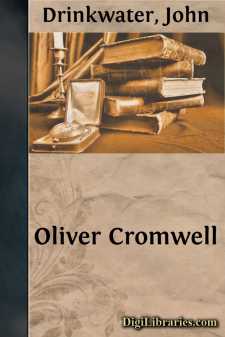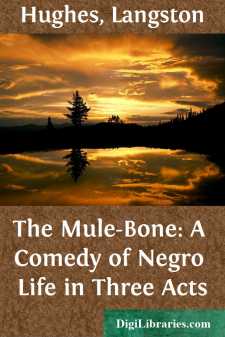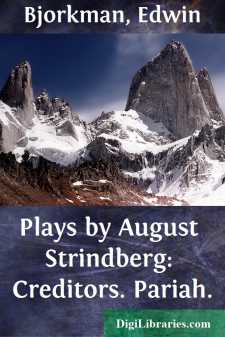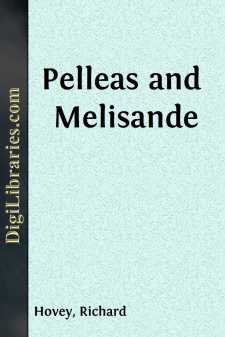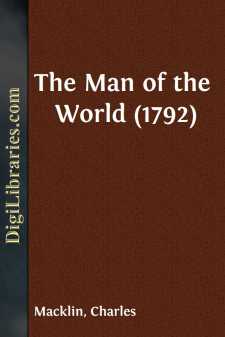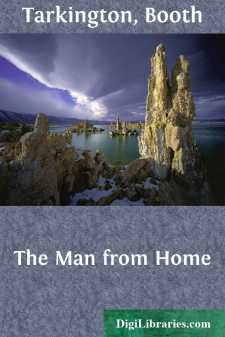Drama Books
Sort by:
by:
Thomas Dekker
INTRODUCTION THOMAS DEKKER Thomas Dekker is believed to have been born in London around 1572, but nothing is known for certain about his youth. He embarked on a career as a theatre writer early in his adult life, the first extant text of his work being 'Old Fortunatus' written around 1596, although there are plays connected with his name which were performed as early as 1594. The period from...
more...
by:
John Drinkwater
SCENE ICromwell'shouse at Ely, about the year 1639. An early summer evening. The window of the room opens on to a smooth lawn, used for bowling, and a garden full of flowers.Oliver'swife,Elizabeth Cromwell, is sitting at the table, sewing. In a chair by the open windowMrs. Cromwell, his mother, is reading. She is eighty years of age.Mrs. Cromwell:Oliver troubles me, persuading everywhere....
more...
by:
Langston Hughes
CHARACTERS JIM WESTON: Guitarist, Methodist, slightly arrogant, agressive, somewhat self-important, ready with his tongue. DAVE CARTER: Dancer, Baptist, soft, happy-go-lucky character, slightly dumb and unable to talk rapidly and wittily. DAISY TAYLOR: Methodist, domestic servant, plump, dark and sexy, self-conscious of clothes and appeal, fickle. JOE CLARK: The Mayor, storekeeper and postmaster,...
more...
SCENE— A shabby front room in a shotgun house. A door covered by dingy portieres upstage C. Small panel window in side Wall L. Plain centre table with chairs drawn up about it. Gaudy calendars on wall. Battered piano against wall R. Kerosene lamp with reflector against wall on either side of room. At rise of curtain NUNKIE is at piano playing…. Others at table with small stacks of chips before each...
more...
THERE ARE CRIMES AND CRIMES INTRODUCTION Strindberg was fifty years old when he wrote "There Are Crimes and Crimes." In the same year, 1899, he produced three of his finest historical dramas: "The Saga of the Folkungs," "Gustavus Vasa," and "Eric XIV." Just before, he had finished "Advent," which he described as "A Mystery," and which was published...
more...
PREFACE Believing plays to be solely for the stage, I have never before allowed any of mine to be printed until they had first faced from a stage the judgment of an audience, to see if they were entitled to be called plays at all. A successful production also has been sometimes a moral support to me when some critic has said, as for instance of "A Night at an Inn," that though it reads passably...
more...
by:
Edwin Bjorkman
This is one of the three plays which Strindberg placed at the head of his dramatic production during the middle ultra-naturalistic period, the other two being "The Father" and "Miss Julia." It is, in many ways, one of the strongest he ever produced. Its rarely excelled unity of construction, its tremendous dramatic tension, and its wonderful psychological analysis combine to make it a...
more...
by:
Richard Hovey
SCENE I.—The gate of the castle. MAIDSERVANTS (within). Open the gate! Open the gate! PORTER (within). Who is there? Why do you come and wake me up? Go out by the little gates; there are enough of them!… A MAIDSERVANT (within). We have come to wash the threshold, the gate, and the steps; open, then! open! ANOTHER MAIDSERVANT (within). There are going to be great happenings! THIRD MAIDSERVANT...
more...
by:
Charles Macklin
INTRODUCTION During his extraordinarily long career as an actor, Charles Macklin wrote several plays. The earliest is King Henry VII; or, The Popish Imposter, a tragedy based on the Perkin Warbeck story, performed at Drury Lane 18 January 1745/6 and published the same year. As the Preface states, it "was design'd as a Kind of Mirror to the present Rebellion"; and it provided the author...
more...
by:
Booth Tarkington
THE FIRST ACT SCENE: The terrace of the Hotel Regina Margherita, on the cliff at Sorrento, overlooking the Bay of Naples. There is a view of the bay and its semi-circular coast-line, dotted with villages; Vesuvius gray in the distance. Across the stage at the rear runs a marble balustrade about three feet high, guarding the edge of the cliff. Upon the left is seen part of one wing of the hotel,...
more...



